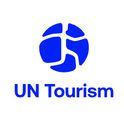UN Tourism and Croatia to Establish Research Centre for Sustainable Tourism
UN Tourism is to work with the Government Croatia and the University of Zagreb to establish a research and development centre focused on sustainable tourism.
Croatia currently serves on UN Tourism’s Committee on Tourism and Sustainability, having chaired it between 2019 and 2023. Alongside the Government’s record of promoting responsible and sustainable tourism practices, this clear leadership and support for UN Tourism’s core values make it the ideal location to host a collaborative platform to drive innovation and catalyse positive change in the tourism sector.
This landmark centre will engage stakeholders from the public and private sectors, academia, and civil society to will address some of the most critical challenges facing tourism, including:
- Reducing the Environmental Impact of Tourism: The centre will prioritize initiatives to minimize waste generation and plastic usage, thereby mitigating the environmental footprint of tourism activities.
- Increasing Usage of Renewable Energy and Energy Efficiency: By promoting the adoption of renewable energy sources and implementing energy-efficient practices, the centre aims to reduce carbon emissions associated with tourism operations.
- Accelerating Adaptation to Climate Change: Recognizing the urgent need to address climate-related risks, the centre will support adaptation strategies to enhance the resilience of tourism destinations and communities.
- Preserving Social Sustainability and Local Communities: The centre will work to safeguard the cultural heritage and livelihoods of local communities by promoting responsible tourism practices and equitable distribution of benefits.
- Enhancing Evidence-Based Policy Making: Through rigorous research and data analysis, the centre will provide policymakers with the evidence needed to formulate effective policies that balance tourism development with environmental and social considerations.
- Providing Relevant and Updated Research: The centre will serve as a hub for cutting-edge research and knowledge exchange, delivering timely insights and best practices for the sustainable development of tourism.
In Zagreb, the Minister of Tourism and Sport of Croatia Nikolina Brnjac and UN Tourism Secretary-General Zurab Pololikashvili signed a Memorandum of Understanding to create the cutting-edge research institution.
Welcoming the collaboration, Secretary-General Pololikashvili said: Croatia leads by example in growing tourism in a sustainable manner. The new research centre in Zagreb will contribute to UN Tourism’s commitment to data-driven policymaking at the regional, national and destination level, ensuring tourism grows responsibly and inclusively, for the benefit of communities everywhere.
Minister of Tourism and Sport of Croatia Nikolina Brnjac adds: I am proud that UN Tourism, the most relevant tourism organization globally, has recognized our efforts in Croatian tourism management reform and our strong commitment to sustainable tourism and put forward the initiative to create the first UN Tourism Centre for sustainable tourism in Croatia together with the Ministry of Tourism and Sport of the Republic of Croatia. With the University of Zagreb as a partner in the establishment of this Centre, I am convinced that this Centre will be successful and provide very relevant research for future sustainable development of tourism.
Related Links:
- UN Tourism: Regional Department for Europe
- Transforming Tourism for Climate Action
- Sustainable tourism development
About UN Tourism
The World Tourism Organization (UN Tourism), a United Nations specialised agency, is the leading international organisation with the decisive and central role in promoting the development of responsible, sustainable and universally accessible tourism. It serves as a global forum for tourism policy issues and a practical source of tourism know-how. Its membership includes 166 countries, 6 territories, 2 permanent observers and over 500 Affiliate Members from the private sector.
Media enquires: [email protected]
UN Tourism Communications Department
+34 91 567 8100
UN Tourism
